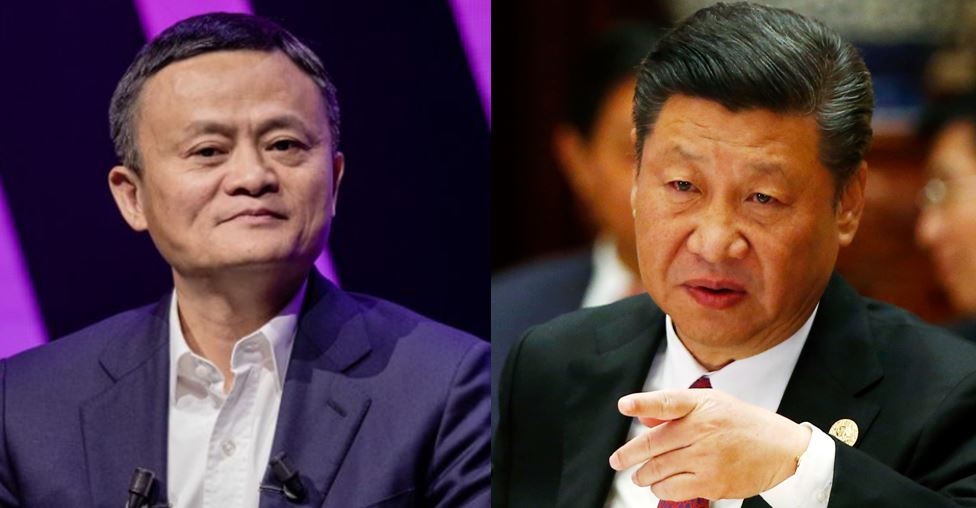Alibaba Chief Jack Ma owes his success in totality to former Chinese President Jiang Zemin, who, under the ‘Three Represents’ principle allowed for the private sector to hop on the driving seat and play a crucial role in the rise of China. It was under Zemin’s rule that Jack Ma made it to the Chinese Communist Party ranks, a development whose mere thought before Jiang Zemin’s presidentship would have been considered sacrilegious. Now that the context of Jack Ma’s meteoric rise within and beyond China has been put in place, where do you think the man’s loyalties lie?
Would Jack Ma be loyal to Jiang Zemin – who facilitated the growth of private enterprise in China and within the CCP; or Xi Jinping – whose single-point agenda is a resuscitation of the crudely socialist China as a nation-state where the party and government reign supreme?
Xi Jinping is increasingly being seen as an enemy of the private sector within China. For a multiplicity of factors, the CCP General Secretary’s power and influence are waning. Rebellions have begun taking shape in the mainland. This has necessitated the Chinese President to take some desperate measures.
Among the measures taken to quell a rebellion against himself within the CCP was the stalling of Ant Group’s initial public offering (IPO) at the Shanghai and Hong Kong Stock Exchange. But why would Xi Jinping stall the listing of Ant Group’s IPO worth $35 billion, you may ask?
One answer could be that the CCP General Secretary wanted to curb the growth of Jack Ma and his private enterprise, and also get back at him for comments made by the entrepreneur in October last year in which he had called China’s financial regulation ‘outdated’.
However, according to a report by the Wall Street Journal, there is much more behind the blocking of Ant Group’s scheduled IPO listing than meets the eye. Much of it has to do with the proximity of Jack Ma with Jiang Zemin’s family, and also with other politically hefty families who can contribute in a big way to the ousting of Xi Jinping from power.
The report described them as “a coterie of well-connected Chinese power players, including some with links to political families that represent a potential challenge to President Xi and his inner circle.”
According to the Wall Street Journal, investment companies linked to the grandson of former President Jiang Zemin and the son-in-law of former Politburo Standing Committee member Jia Qinglin stood to profit from the IPO. How so, one may think? Well, as it turns out, such investment companies held ownership in the Ant Group through “layers of opaque investment vehicles that own stakes in the firm”.
Ant Group’s IPO would have the largest public stock listing after Saudi Arabia’s Aramco in 2019. While this would most certainly send a message across the world of China’s growing private enterprise, it would also send a message to Xi Jinping and his inner circle, that they are not supreme in China after all.
Further, this would also, according to WSJ, end up benefitting potential rivals of Xi Jinping in the Shanghai faction – a coterie of CCP leaders crucial for the General Secretary to have the support of. Ant Group’s IPO might have ended up buying out such leaders with loads of cash, turning them against Jinping and in favour of Jack Ma.
Xi Jinping is a ruthless leader. We must give him credit where due – the man is no political novice. Being the Chinese President allows him to sniff threats to his empire from a mile away, giving him enough legroom to act in self-defence. And he did act, blocking the IPO listing of Ant Group at the very last moment, thus sucking the benefactors dry of what they thought would be incredible profits.
The spoils of such a successful listing by Ant Group at the Shanghai stock exchange would have also been used to fund a rebellion against Xi Jinping. For now, however, the CCP General Secretary has won. What the entire episode does reveal though, is that Jinping’s claim to the throne is set to be challenged sooner than expected.








